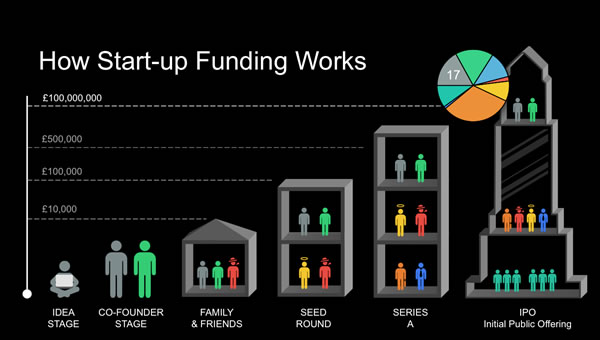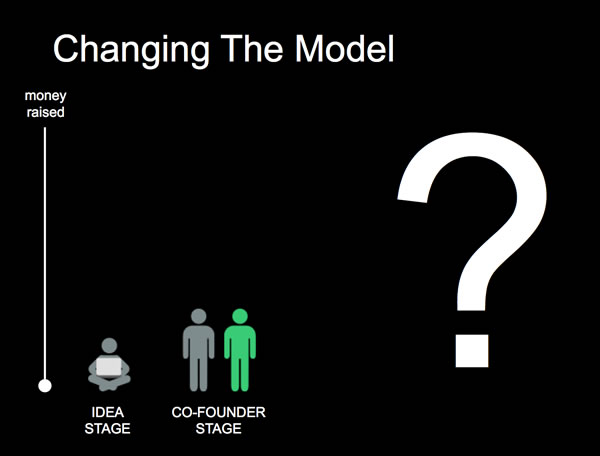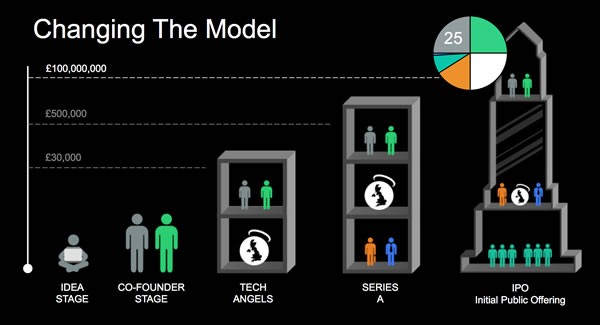
Web Applications UK Ltd
We live in fast times. The constantly evolving socio-economics of the 21st Century are shaped by a digital generation that increasingly strives to say more with less.
Why say something with a sentence you can articulate with a mere word? News institutions are striving to be more like culturally-resonant media sites such as Buzzfeed. It’s common business practice for companies to have a blogger amongst their staff members. If you can’t say it in 140 characters, don’t say it.
This article itself is written in bite-size chunks to keep your eye from wandering. The emergence of i100, The Independent’s internet culture commentator, is a pertinent example of changing attitudes.
I recently read a quote from Professor Richard Foster (Yale) that stated in 6 years, 75% of companies on the S&P 500 index will be companies we haven’t heard of yet. The implications of this are huge. The world is showing no signs of slowing down, and the CEOs of the future are people who can keep pace. Luckily for today’s student population, you’ve largely been raised in a world where the only constant question is “how can we make it faster?”
Those of you wanting your future company to be in that 75% might want to think about the following.
1. Be responsive to change
Change (CC) by SomeDriftwood
Having recently met a couple of students with start-up ideas, I’ve realised that it’s difficult for first-time company founders to be open-minded to change. One budding CEO, for example, discovered his prospective company name/website domain name was already taken by a different type of business in a different sector – a different country altogether, in fact. I advised him to change the name. You may think this was a bit of an overkill. The other business wasn’t exactly a competitor, and they were hardly likely to ever come in contact with each other. I agree – but it pays to think about the when, not the now.
Five years down the line, imagine the start-up is a household name: that .com domain name reserved by a tiny one-person operation in Paraguay is suddenly a very expensive problem.
Why give yourself an obstacle that you don’t need to? Change the business name if it’s taken. Change the product if somebody is already selling it. Change the idea if you have a better one. This is called pivoting, and the goal is always to improve.
2. Nothing is new
Ecclesiastes 1:9 –
“What has been done will be done again; there is nothing new under the sun”.
Case in point, Snapchat. The picture-messaging app Snapchat was conceptualised and launched in 2011. MMS has existed in most handheld devices since the early 2000s. Editing photos on a handheld device? Yep.
A great idea is in-part defined by its newness. But the newness lies in the recipe, not the ingredients. In fact, founder Evan Spiegel recalls when he and classmate Reggie Brown came up with the idea, his peers considered the idea, particularly the concept of temporary photo-messaging (the new bit), “terrible”.
As of August, Snapchat was valued at US$10 Billion. After running a long time as a non-profit, Snapchat is slowly moving into the monetisation of service through cleverly integrated, opt-in ad revenue, if only as a counterweight for what Brown describes as “ridiculous” server bills!
When we say nothing is new, we mean it on an atomic level. In that sense, it’s undeniable. This doesn’t mean innovation is impossible. In fact, it’s essential. Making something new means evolving from something old. A start-up is just old concepts taking a new form – ingredients in a recipe.
3. The damage outsourcing can do
In partnership with Salford Enterprise/Salford Business School, WA:UK Tech Angels are offering cash prizes for the best start-up idea pitched to our panel at MediaCityUK on the 3rd Dec.
In my role as a panel judge, I’ve been meeting with some of the early applicants and giving them pointers on how to improve their business idea before they pitch it to the panel. One thing I’ve been repeating is the damage an early-stage business can do to their prospects of success by outsourcing product development. This is common in software development, but is just as relevant for any business.
For ease-of-use, let’s focus on software development (most students I have come across have pitched something involving an app). If you don’t have the coding knowledge to put your project together, your next step is to locate someone who can. The temptation is to turn to a contractor. Established software houses who can guarantee delivery seems like a safe option, and can appear to accelerate the progress you make in your early stages.
But you’ll find that product development is never clean cut. Chopping and changing in the early stages of development is common practice, and for each iteration of your product, your contractor will send you a new bill. This comes back to what I said earlier – why give yourself obstacles you don’t need to?
The better route is to find someone to attach to your project permanently. Not only does seeking a technical co-founder eliminate early growing pains such as this, but it increases your company value and makes you more attractive to potential investors. Note that software developers who come in at the ground floor are likely to ask for a co-founders shareholding, considering they are putting a lot of their time into a project that can’t afford to pay them. Whilst giving away half of your brand new company seems like a big and unnecessary step, it is vital to success.
Most of you who have spoken to me about your start-up idea will have heard me say something along the lines of ‘100% of nothing is still nothing. 50% of £100k is £50k.
4. Staying afloat in a diminished option pool
Traditionally, the start-up funding model involves seeking investment from an option pool of people in a trusted circle, such as family and close friends. 
How start-up funding works
The currently tight economic climate has closed a lot of doors that would normally have been accessible in an option pool funding round. Some entrepreneurs don’t have family willing or able to invest financially anyway.
Changing the start-up model
This is where a start-up has to get creative. Using business incubators such as Spark Studio and Innospace is one way to keep costs low, whilst conducting your day-to-day in a dynamic, productive, and professional atmosphere.
Manchester entrepreneurs aren’t typically blessed with the luxury of choosing which rich uncle to seek investment from. WA:UK Tech Angels is an angel investor with a difference, not merely striving to speed up the growth of start-ups. We aim to help them achieve that trajectory with expert mentorship and seed investment, by getting involved at a much earlier stage than traditional angels.
Changing the start-up model: WA:UK Tech Angels
Manchester graduates have a steep hill to climb. But it is getting better. The current generation of Manchester start-ups with bright-looking futures are a testament to that. Then there are incubators catering specifically to tech start-ups and ventures like SpaceportX. Our trajectory is improving, and companies such as Tech Angels are here to facilitate the change – so that enterprising graduates from Manchester have a positive outlook.
5. Make use of the WA:UK Tech Angels
If you are a University of Salford student thinking about your start-up – we would love to hear from you – WA:UK Tech Angels deadline is Monday 17th November!




[…] the Web Applications group and they are based here in the North-West of England in Oldham. They are early stage angel investors, which means that rather than investing purely in already established companies and products, they […]